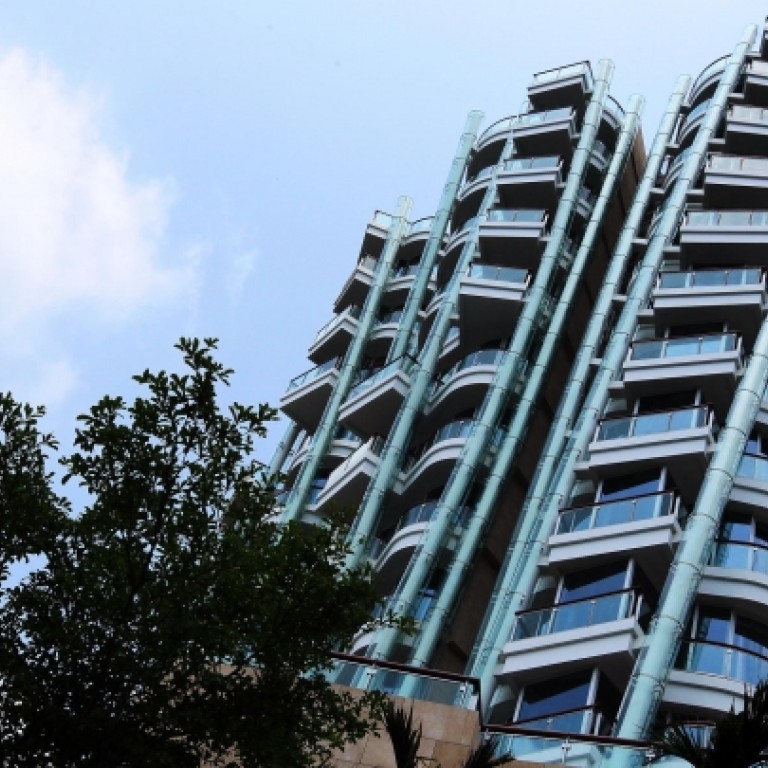
Luxury rental market set to soften further in second half
Experts say demand from expatriates is weak because housing allowances have been cut amid instability in global financial and equity markets
Rentals in Hong Kong's luxury housing sector are falling, and will keep dropping in the second half of the year due to various bearish factors, analysts say.
"The luxury housing rental market started to soften in April and May. Demand is weak during this year's traditional high season for leasing to expatriates, which started in May," said Koh Keng-shing, founder of property consultancy Landscope Christie's International Real Estate.
"There's been a sudden increase in leasing stock, but there's no commensurate increase in demand from finance professionals.
"This is due to reductions in their housing budgets as many financial institutions downsize their operations amid instability in the global financial and equity markets."
As a result of these bearish conditions, rentals in the past two months had dropped 5 to 10 per cent, mainly in the south side of Hong Kong Island and at The Peak, he said.
"Between now and the end of this year, I expect another 10 to 15 per cent drop in rentals as owners of luxury flats get more aggressive in reducing their asking price after the peak leasing season this month,"Koh said.
He noted that while a luxury flat at the Opus, the new 12-storey Swire Properties development in Stubbs Road, reportedly achieved an unusually high monthly rental of HK$724,000, the transaction should be regarded more as an exception than a rule.
The flat was rented to the British consul general.
"In terms of design and quality, that project stands way above other luxury apartments in Hong Kong and the rest of Asia," Koh said.
"It defies the traditional way of building luxury apartments here and this enables Swire to charge a premium."
Because of the uniqueness of the Swire development, the transactions there are not expected to have any positive impact on the luxury rental market, which will probably continue its downtrend until the end of the year.
Edward Farrelly, head of CBRE Research for Hong Kong, Macau and Taiwan, said the firm had observed increased demand for smaller and more cost-effective alternatives, particularly a move away from luxury units.
"This has been a consistent trend both in serviced apartments as well as regular flats," he said.
"This trend has led to considerable rental growth in units under 750 square feet net in the regular rental market and similar rental growth in mid- to low-end serviced apartments.
"Inversely, top-end apartments and serviced apartments have experienced a substantial drop in the rents, as well as increasing vacancy rates."
Farrelly said those trends could be attributed to various factors.
"They include falling accommodation allowances for staff in many sectors, particularly finance, greater cost awareness amongst tenants, as well as an increase in supply of high-end units on the rental market," he said.
"This increased supply has been caused directly by people choosing to let their homes as opposed to selling them due to pressures caused by the latest government cooling measures."
Alva To Yu-hung, managing director in Hong Kong and head of consulting, north Asia, for property consultancy DTZ, said the decision of many owners of luxury flats to drop plans to sell their units after the government introduced new curbs on non-residents had exerted pressure on the rental market.
"I expect these bearish pressures on the luxury rental market to persist until the end of this year," he said.

